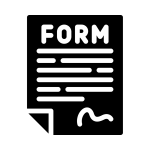Academic Field Trip Safety
Academic field trips are valuable experiences in the educational journey, offering students the opportunity to learn beyond the classroom. As a trip leader, it's crucial to ensure these excursions run smoothly, keeping safety and educational goals in mind. In this article, we'll provide a clear and resourceful guide for trip leaders, simplifying the process of planning and executing academic field trips.
Defining Academic Field Trips
Academic field trips are off-campus activities, led by university faculty or staff, with the primary aim of serving educational purposes. These trips encompass various activities, such as data collection for research, museum visits, participation in conferences, competitions, or exploration of places of interest. The duration of a field trip can vary from a single class period to multiple days. It's important to note that these guidelines do not apply to teacher preparation programs, intercollegiate sports, or service-learning placements, as they have separate policies governing them.
Guidance for Trip Leaders
The following guidelines are designed to help trip leaders and administrative staff ensure the success and safety of academic field trips. Keep in mind that individual colleges may have specific requirements, so always check with your college for their particular guidelines. For example, some colleges may require trip leaders to submit a Field Trip Request Form to the College Dean as outlined in the Faculty Administrative Manual (FAM) 836.1 Field Trips.

Conduct a Risk Assessment
Before embarking on a field trip, it's crucial for the site leader to assess potential risks and dangers. These may include strenuous activities, dangerous animals, poisonous plants, or concerns about local area crime. Document any unusual risks and retain this information on file within your department.

Inform Students of Risks and Hazards
Transparency is key. Communicate potential risks and hazards to all participants in writing, including expectations and behavior during the trip. Additionally, explain the steps being taken to mitigate these risks as well as emergency preparedness procedures. For example, if you're anticipating extreme heat conditions, advise students to drink water, wear loose clothing, and take breaks in the shade.

Provide Students with Trip Information
Create a trip information agenda that outlines the trip's schedule, safety and emergency procedures, and the student code of conduct. This agenda helps set expectations and ensures everyone is on the same page.

Accommodations
Work with the Office of Services for Students with Disabilities to include a plan to accommodate all students in need of additional support.

Collect Required Forms
Before the trip begins, collect the following information utilizing the below forms and send them to the hosting department or college to keep on record:
Student Travel Participant List: Complete this form to collect all participant, emergency contact, and trip information. Submission of this form sends a copy to University Police.
Release of Liability: Participants to complete prior to the trip.

Ground Transportation Arrangements
Ensure that all students understand the transportation arrangements for the trip. Instruct designated vehicle drivers to follow the Field Trip Transportation Requirements. The Department Chair should review the necessary forms and make sure they can be easily retrieved when needed.
Trip leaders or staff driving on a field trip or conducting any state business must meet the following criteria:
Driving State Vehicles
- Possess a valid California driver's license.
- Hold a current Defensive Driver Training certificate.
- Maintain a good driving record.
Driving Privately Owned Vehicles on State Business
- A current Defensive Driver Training Certificate (contact Parking Services)
- A good driving record as verified by the Parking
- Annual completion of the Authorization to Use Privately Owned Vehicles on State Business form STD 261
- Proof of vehicle insurance for the minimum amount prescribed by law
It's essential to remember that personal liability insurance is the primary coverage when driving a privately owned vehicle. Alcoholic beverages or controlled substances should never be transported in a state or private vehicle during official state business.
For additional information on state or private vehicle use, authorized drivers, and related policies, please consult the Vehicle Use & Policy Program webpage.
By following these guidelines, trip leaders can help ensure the safety and educational success of academic field trips, making these off-campus adventures enriching experiences for students. Always remember to adhere to your department’s specific requirements and seek guidance from Risk Management when planning field trips.
